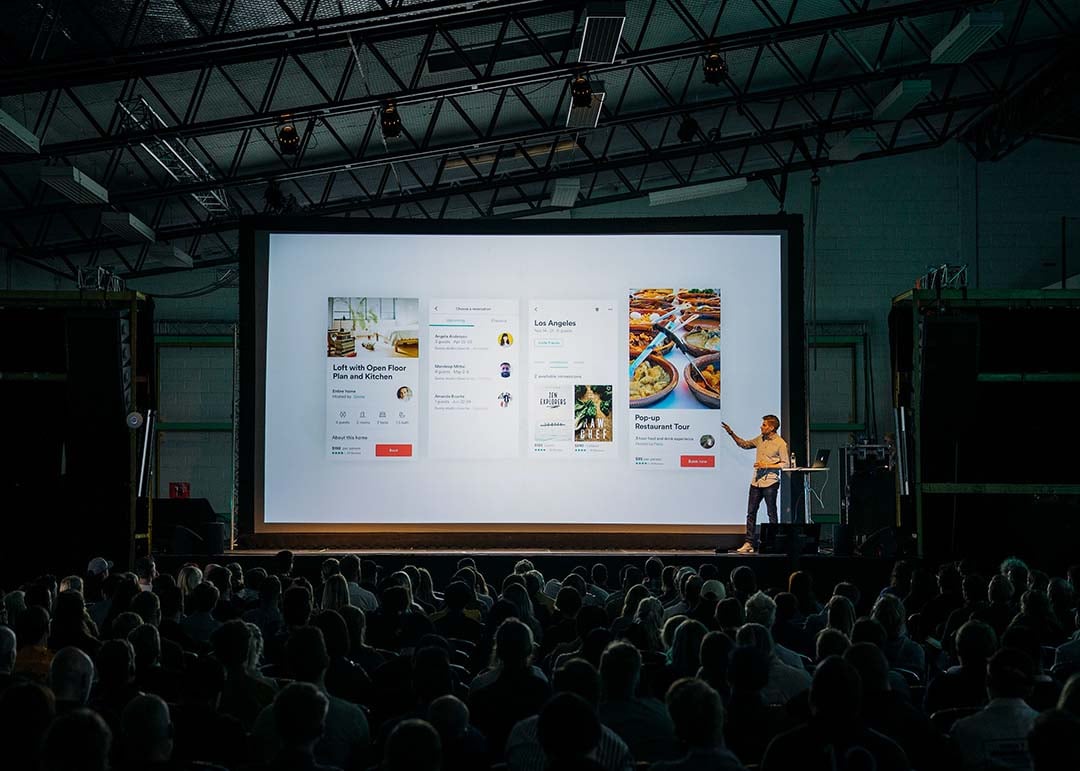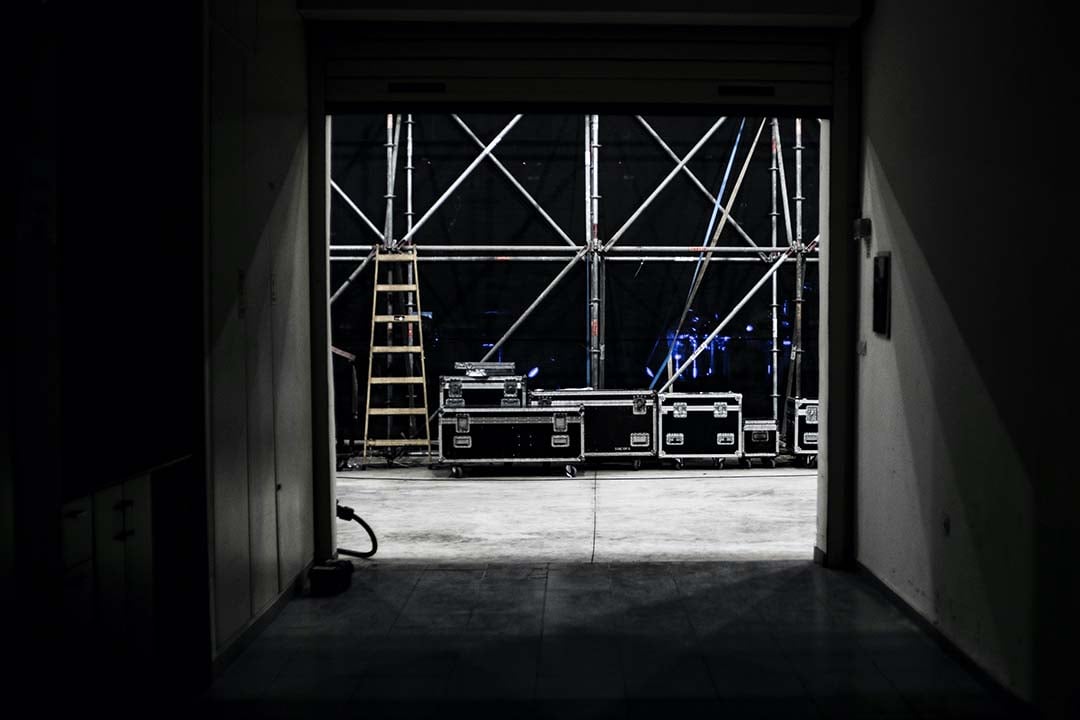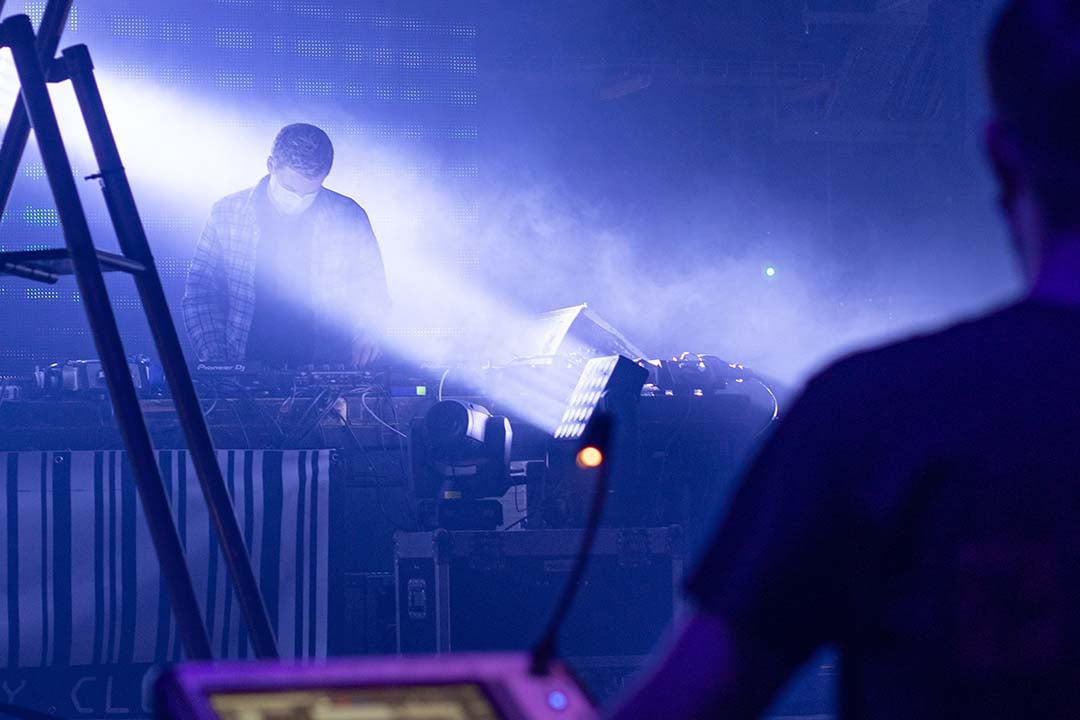Let’s say you are attending a large conference or a live debate. While some participants attend in person, other panels may consist of remote participants.
Now, imagine everyone listening intently to the speaker or viewing a performance and - screech! Something goes wrong with the audiovisual equipment in the room. The mic stops working; the video loses signal! Perhaps the projectors are not working correctly. Perhaps the lights are malfunctioning.
Enter the breakout operator.
A breakout operator is a technician who helps with event technology, primarily at events and meeting rooms.
Many consider the term “audiovisual technician” or “AV tech” the broadest job title in the live events industry. However, breakout operators are specialized AV technicians in charge of operating and troubleshooting everything technical inside live events and breakout room meetings.

What does a breakout operator do during an event?
The main role of the breakout operator during an event is to help the presenter with their presentation, mic and show them how the equipment is the room works i.e. presentation mouse, laser pointer, speaker timer, etc. Also, the breakout operators is the only person a presenter might have contact with so customer service is very, very important.
The breakout operators review the video switchers and audio consoles, so there are no technical glitches and they have an understanding of how the system was setup. Additionally, they also have to operate the lighting consoles.
Of course, the ability and skills to manage various AV equipment come in handy during the event. On occasions, these skills will be put to test when the need for improvisation arises.
Troubleshooting during the event is where breakout operators earn their reputation. The more experienced operators come up with the best solutions in the shortest time. During troubleshooting, breakout operators must communicate with the client/presenter to maintain transparency.
You might like: Live Event Crew Starter Guide
What does the breakout operator do after an event?
Like most live event technicians, breakout operators work on packing up (striking) the equipment once the event is over. Wires, lights, microphones, cables, and other machinery are thoroughly inspected, and the damages are noted. After the packing is complete, the operators can help transport the equipment back to the warehouse.
However, before they leave the venue, many breakout operators will take feedback from the client. In turn, they will put forward suggestions and observations for the client. Such a mutually beneficial exchange helps build rapport with the client and increases the trustworthiness of the breakout operator.

What do I need to become a breakout operator?
Heard the term "jack of all trades, master of none"? Well, breakout operators need to be highly skilled in the live events industry.
While a technical degree in audiovisual and production helps you learn skills quicker, such degrees are optional to succeed as a breakout room operator.
What’s more important in this field is your technical skills and hands-on expertise since the breakout operator must ensure that the technical side of things works seamlessly. They also need to be highly customer service oriented. Much of their interactions with presenters are simple instruction, so having a good customer service is a must.
- Breakout operators should bring a friendly attitude and have good verbal and written communication skills. They must be calm and level-headed to devise solutions to technical faults during an event quickly.
- Breakout operators must understand audio well. Before anything else, they need to know how analog and digital consoles work. Knowledge of wireless microphones, how to program their frequencies, wired microphones, podium microphones, and condenser microphones will enhance a breakout operator’s skill set.
- On the visual side, breakout operators must be accustomed to the technicalities of video switchers. Learning how to operate different cameras also helps in this profession.
- Understanding different software is an excellent advantage for any breakout operator. They must be familiar with altering and fixing the output display settings on different devices (both Windows and iOS). Learning how to make everything in Powerpoint and Keynote also helps.
- Bonus points go to anybody who knows how lighting is generally set up in a meeting room or conference. Apart from setting the lighting equipment, the breakout operator has to learn to use basic protocols for lighting and lighting consoles.
- The ability to multitask and troubleshoot problems on the go is a big part of the breakout operator job.
Related: How To Advance Your Events Career Through Education & Training feat. Omar Colom

How do I find breakout operator jobs?
Networking is your best bet in getting started with gigs in the live production industry. If you are a new or budding breakout operator, you should be talking to people connected with the profession and growing your network.
Taking a hands-on approach can also land you a job. Check your local event listings and take the initiative to talk to the AV techs in charge of these events. You can also try putting up your CV on job portals.
While you may not start as a breakout operator, these efforts can land you internships that help you learn the necessary skills. It is imperative that you work hard and not slack off! Always be curious and willing to learn new things, and you'll soon find yourself with a breakout operator job.
Are you a skilled breakout operator? Schedule your vetting call!
